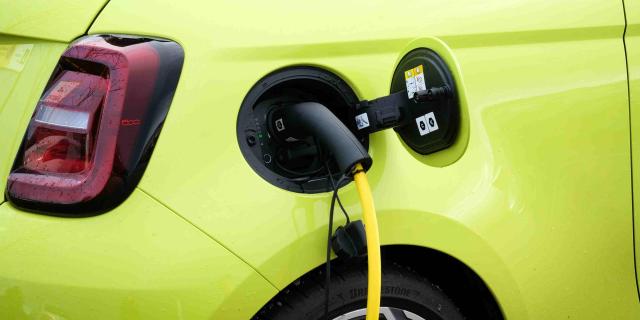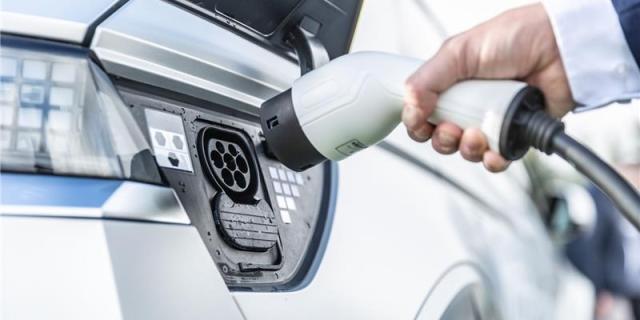Tax benefits, low emission zones and improved corporate image lead to more electrified vehicles at half of Belgian companies
Arval Mobility Observatory Barometer: 4 in 10 companies expect an increase in the number of company vehicles
The low emission zones in our country are having an impact. Half of Belgian companies say they are choosing more electric and plug-in hybrid vehicles, partly because of these zones. This is positive, because 4 out of 10 companies think that within three years they will have to go for more, not less, company vehicles. And telecommuting results in over a third fewer kilometres driven with company vehicles. These are a few striking conclusions from the annual Arval Mobility Observatory Barometer.
Yves Ceurstemont, Head of Arval Mobility Observatory: “Despite the impact of the Covid-19 crisis, companies remain committed to the greening of their fleet. 4 out of 10 companies even expect to expand their fleet. In addition, COVID-19 has clearly resulted in a broader view on mobility. For example, today almost 9 out of 10 large and medium-sized companies already offer one or more alternative mobility solutions, such as bicycles. Finally, 75% of the fleet managers of the Belgian companies surveyed expect to have electrified vehicles in their fleet within the next three years.”
#1 – Broader mobility offer for more employees
Companies are clearly looking for safe (individual) modes of transport for all staff members. That is why the (electric) bike has remained a stronghold. 74% of medium-sized and large companies that already offer a mobility budget today or plan to do so within the next three years expect that company vehicle drivers will be interested in a mobility budget as a supplement to their company vehicle. Companies with less than 100 employees, on the other hand, are clearly more reticent in their mobility ambitions, also in comparison to the European benchmark.
In addition, 73% of the companies surveyed indicate that they will introduce or expand homeworking for their employees. This is an increase of 16 points compared to 2020. On average, they assume almost 3 days of homeworking per week. This is one of the reasons why they expect company vehicles to cover 36% less kilometres. Here, too, the larger companies have higher ambitions than the smaller ones.
#2 – Accelerated electrification of vehicle fleets
Almost 45% of the Belgian companies surveyed indicated that they already have electrified vehicles in their fleet. Both hybrid (HEV), plug-in-hybrid (PHEV) and electric (BEV) vehicles. Within this year and three years, that share will increase to 75%. Both figures are also the European average. Here, too, companies with more than 100 employees took the lead with over 60% implementation today, rising to 85% within three years. Companies with 10 to 100 employees score just under 30% today, but are preparing to catch up to 82% within 3 years. Small businesses (< 10 employees) are 28% electrified today and, as in the rest of Europe, expect this figure to rise to over 55% in the next 3 years.
The most popular technologies today are hybrids and plug-in hybrids. These are used by 32% and 30% of the companies surveyed respectively. For the electric vehicle, the figure is 24% today, but is expected to rise to 54% by 2024. Companies also indicate that within three years, 29% of passenger cars and 26% of light trucks in their fleets will be fully electric. For the latter category, the share of companies intending to use Battery Electric Vehicles (BEVs) rose from 44% to 56%. Again, we see signs of growing confidence in the applicability of BEVs.
Belgian companies, more than their European counterparts, cite the following aspects as motivations for the further electrification of their fleets:
- Fiscal benefits,
- Improving the corporate image,
- Maintaining access to low emission zones (LEZ), and
- Total cost of ownership (TCO) equal to or lower than that of combustion engine vehicles.
This barometer also shows that the traditional barriers to the implementation of BEVs - such as a higher purchase cost and a lack of charging infrastructure at home or in the office - play less of a role in company vehicle fleets than before. Belgian companies only cite the lack of public charging infrastructure more often as an obstacle than companies in other countries.
#3 – Growing fleets and potential for operational leasing
Despite the impact of the Covid-19 crisis, companies are looking positively towards the future of their vehicle fleets. One in ten companies surveyed expects the number of vehicles in the company's fleet to decrease. On the other hand, four times more companies expect their fleet to grow. This ratio is almost identical for all company sizes. The main reasons for expected growth are:
- expansion of existing activities or starting up new activities in the business;
- setting up a company vehicle wage exchange programme, whereby wages can be exchanged for a company vehicle;
- HR policy: offering company vehicles to more positions in the 'war for talent'.
In addition, almost two-thirds of the companies surveyed indicated that they will introduce or expand operational leasing as a form of financing for company vehicles in the next three years. More than ever, companies are recognising the major benefits of the leasing company's advisory role and convenient Total Cost of Ownership (TCO) approach in the transition to a more diverse energy mix and alternative mobility.
> Read the complete Barometer of 2021 via the button below.
Do you have a question about Barometer 2021? Send an e-mail to Yves Ceurstemont, Head of Arval Mobility Observatory at yves.ceurstemont@arval.be or call him on 02 240 01 99.
Methodology 2021
In Belgium, the survey was carried out by the independent research bureau Kantar between 16 November and 21 December 2020 among 250 fleet managers of companies with at least one vehicle in the fleet (passenger cars or light trucks). Respondents were invited by telephone to complete the online questionnaire. The panel was composed as follows:
- 33% of the surveyed enterprises with less than 10 employees;
- 20% of the surveyed enterprises with 10 to 99 employees;
- 27% of the surveyed enterprises with 100 to 499 employees;
- 20% of the surveyed companies with more than 500 employees.
Internationally, 5,197 companies (4,794 in Europe) in 20 countries with at least one vehicle in their fleet were surveyed under the same conditions between 27 October 2020 and 15 January 2021. The countries surveyed were: Austria, Belgium, Czech Republic, Denmark, Finland, France, Germany, Italy, Luxembourg, Netherlands, Norway, Poland, Portugal, Spain, Sweden, Switzerland, United Kingdom, Russia, Turkey and Brazil.
DOWNLOAD






